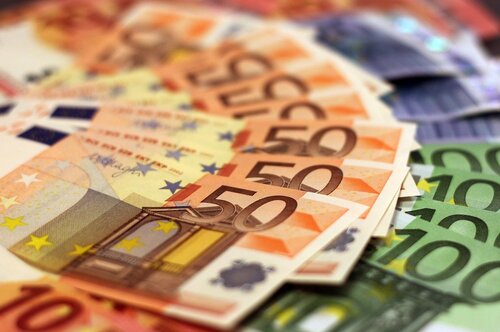La décollecte est négative depuis mars
Le marché de l’assurance-vie est à la peine malgré la sortie du confinement. La décollecte nette entre juin et juillet est de 500 millions d’euros environ. En juillet, les Français ont déposé 10,4 milliards d’euros sur leurs contrats, soit légèrement plus que les 9,9 milliards d’euros recensés en juin. Ces chiffres restent néanmoins inférieurs à ceux de l’année précédente : 13,4 milliards d’euros déposés au mois de juillet 2019.
Selon les données de la FFA, la décollecte est négative depuis mars. En mars, avril et mai 2020, celle-ci était proche des 2 milliards d’euros par mois.
Les placements « en euros » sont les plus touchés
Les fonds en euros à capital garanti, très prisés des épargnants il y a encore quelques années, semblent être les plus touchés. Les faibles taux d’intérêt pèsent sur leur attractivité en tirant les rendements vers le bas. Le cabinet Facts & Figures estime que le taux servi par les fonds en euros des contrats d’assurance-vie s’établira entre 1 et 1,10 % en 2020. Par ailleurs, les assureurs incitent désormais leurs clients à souscrire des contrats en unités de compte plus risqués, mais aussi plus rémunérateurs.
Enfin, ces mauvais chiffres s’expliquent par les difficultés opérationnelles liées à la crise sanitaire. Le confinement a obligé de nombreux points de distribution et notamment les agences bancaires à fermer leurs portes. Or, il reste aujourd’hui difficile de souscrire un contrat d’assurance-vie à distance.
Un tiers des cotisations versées sur les unités de compte
Depuis le début de l’année, un tiers des cotisations (soit 3,5 milliards d’euros) ont été versées sur les unités de compte, preuve que la proportion d’épargne collectée sur ces supports continue à grossir. Ce flux a été alimenté par le verrouillage progressif des fonds en euros, mais aussi par les nouvelles formules en gestion pilotée comme le Plan d’épargne retraite (PER) qui rencontre un succès important ou le Plan d’épargne pour la retraite collectif (PERCO).
Une chose est sûre, le Livret A et le Livret de développement durable et solidaire (LDDS), moins contraignants et plus sûrs, ont tiré profit de cette décollecte. Les deux livrets réglementés ont enregistré une collecte nette de 2,5 milliards d’euros en juillet, et de 28,6 milliards d’euros sur les 6 premiers mois de l’année. Les mois d’avril et mai font état d’une collecte assez spectaculaire, respectivement 5,4 et 3,9 milliards d’euros, des sommes jamais atteintes depuis janvier 2013 (8,2 milliards d’euros).
